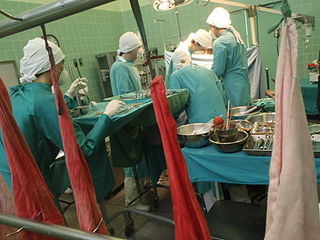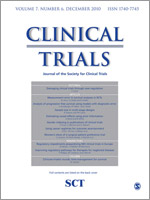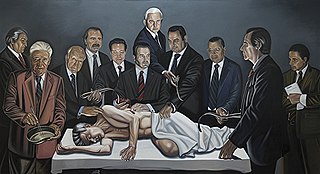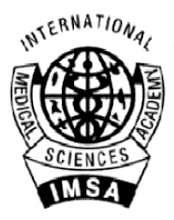
The American Psychological Association (APA) is the largest scientific and professional organization of psychologists in the United States, with over 146,000 members, including scientists, educators, clinicians, consultants, and students. It has 54 divisions—interest groups for different subspecialties of psychology or topical areas. The APA has an annual budget of around $125 million.

Organ transplantation is a medical procedure in which an organ is removed from one body and placed in the body of a recipient, to replace a damaged or missing organ. The donor and recipient may be at the same location, or organs may be transported from a donor site to another location. Organs and/or tissues that are transplanted within the same person's body are called autografts. Transplants that are recently performed between two subjects of the same species are called allografts. Allografts can either be from a living or cadaveric source.
A head transplant is an experimental surgical operation involving the grafting of one organism's head onto the body of another. In many experiments, the recipient's head has not been removed, but in others it has been. Experimentation in animals began in the early 1900s. As of 2023, no lasting successes have been achieved.
In philosophy and neuroscience, neuroethics is the study of both the ethics of neuroscience and the neuroscience of ethics. The ethics of neuroscience concerns the ethical, legal and social impact of neuroscience, including the ways in which neurotechnology can be used to predict or alter human behavior and "the implications of our mechanistic understanding of brain function for society... integrating neuroscientific knowledge with ethical and social thought".

Xenotransplantation, or heterologous transplant, is the transplantation of living cells, tissues or organs from one species to another. Such cells, tissues or organs are called xenografts or xenotransplants. It is contrasted with allotransplantation, syngeneic transplantation or isotransplantation and autotransplantation. Xenotransplantation is an artificial method of creating an animal-human chimera, that is, a human with a subset of animal cells. In contrast, an individual where each cell contains genetic material from a human and an animal is called a human–animal hybrid.

The American Society for Reproductive Medicine (ASRM) is a nonprofit, multidisciplinary organization for advancement of the science and practice of reproductive medicine. The society has its headquarters in Washington, D.C and its administrative office in Birmingham, Alabama.

Organ transplantation in China has taken place since the 1960s, and is one of the largest organ transplant programmes in the world, peaking at over 13,000 liver and kidney transplants a year in 2004. Involuntary organ harvesting is illegal under Chinese law; though, under a 1984 regulation, it became legal to remove organs from executed criminals with the prior consent of the criminal or permission of relatives. Growing concerns about possible ethical abuses arising from coerced consent and corruption led medical groups and human rights organizations, by the 1990s, to condemn the practice. These concerns resurfaced in 2001, when a Chinese asylum-seeking doctor testified that he had taken part in organ extraction operations.

Stephanie Fae Beauclair, better known as Baby Fae, was an American infant born in 1984 with hypoplastic left heart syndrome. She became the first infant subject of a xenotransplant procedure and first successful infant heart transplant, receiving the heart of a baboon. Though she died within a month of the procedure, she lived weeks longer than any previous recipient of a non-human heart.

Nadey S. Hakim FASMBS, is a British-Lebanese professor of transplantation surgery at Imperial College London and general surgeon at the Cleveland Clinic London. He is also a writer, musician and sculptor, known for kidney and pancreas transplantations, and being part of the surgical team that performed the world's first hand transplantation in 1998 and then the double arm transplantation in 2000. Several of his sculptures are on display around the world, including President Macron at the Élysée Palace in Paris, Pope Francis at the Vatican, Michelangelos David in the Madonna del Parto Museum collection, and Kim Jong-un at the Pyongyang Museum in North Korea.

Mehmet Haberal, is the founder of Başkent University in Ankara, Turkey, best known for becoming the first transplant surgeon in Turkey after leading the team that performed Turkey's first living-related kidney transplant in 1975, after he returned from surgical training under the mentorship of American surgeon Thomas Starzl, with whom he also performed some of the longest surviving early liver transplantations.
The American Journal of Transplantation is a monthly peer-reviewed medical journal published by Wiley-Blackwell on behalf of the American Society of Transplant Surgeons and the American Society of Transplantation. It covers research on all aspects of organ transplantation. Each issue offers continuing medical education in the form of its Images in Transplantation feature, a case-based approach.
The MacLean Center for Clinical Medical Ethics, founded in 1981, is a non-profit clinical medical ethics research institute based in the United States. Founded by its director, Mark Siegler, the MacLean Center for Clinical Medical Ethics aims to improve patient care and outcomes by promoting research in clinical medical ethics by educating physicians, nurses, and other health care professionals and by helping University of Chicago Medicine patients, families, and health care providers identify and resolve ethical dilemmas. The center has trained over 410 fellows, including many physicians, attorneys, PhDs and bioethicists.

Clinical Trials, subtitled as Journal of the Society for Clinical Trials, is a peer-reviewed academic journal covering clinical trials and related subjects in the field of medical research methodology. It is published six times a year by SAGE Publications on behalf of The Society for Clinical Trials (SCT). The journal's main editor is Colin Begg.

Lainie Friedman Ross is an American physician and bioethicist who works at the University of Chicago.
Wendy Anne Rogers is a professor of clinical ethics at Macquarie University in Sydney, Australia. She was nominated as one of Nature's 10 people who mattered in 2019 for revealing ethical failures in China’s studies on organ transplantation.

Fikri Alican was a Turkish scientist and physician with various contributions to medical science, ranging from organ transplantation to physiology.
Baishideng Publishing Group is a publisher of medical journals based in Pleasanton, California. It was established on January 15, 1993, and originally published only one journal: the Chinese-language Journal of New Digestology. Its second journal was the World Journal of Gastroenterology, originally launched in 1995 as the China National Journal of New Gastroenterology. As of 2017, the company published 43 journals, 42 in English and one in Chinese.

The 'Finger-Assisted' Nephrectomy of Professor Nadey Hakim and the World Presidents of the International College of Surgeons in Chicago, or, The Wise in Examination of the Torn Contemporary State is a painting by British artist Henry Ward depicting transplant surgeon Nadey Hakim demonstrating the removal of a living donor kidney. It is on display at Başkent University, Ankara, Turkey.
The Middle East Society for Organ Transplantation (MESOT) is an organization that promotes developments in the field of organ transplantation between medical centers in Middle Eastern, North African and some neighbouring Asian countries. It was founded in Turkey by Mehmet A. Haberal in 1987 and there are more than 29 countries that have membership covering a population of more than 600 million.

The International Medical Sciences Academy (IMSA) is a global organization founded in 1981 with the aim of improving universal health. It is registered as a professional body under the Societies Registration Act of India and is based in New Delhi, India. It publishes the Journal of the International Medical Sciences Academy and is an associate member of the Council for International Organizations of Medical Sciences.












